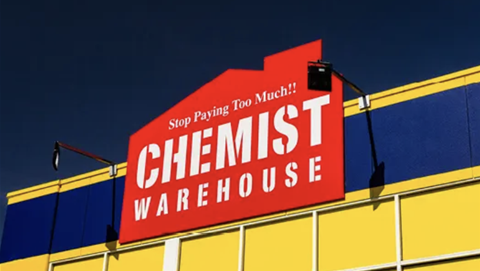Circular economy charity Good360 has released its Inner Circle program to help retailers, wholesalers and manufacturers meet individual sustainability goals.
According to Good360, this program encourages, supports and recognises manufacturers, wholesalers and retailers that have sustainability and social impact at their core to provide relief from the cost-of-living pressures.
This program was developed with the support of the Australian Retailers Association (ARA).
Businesses who become partners of the Good360 Inner Circle program will receive regular data and impact reporting covering their environmental and social contributions, plus be awarded a Good360 Inner Circle badge that publicly recognises their sustainability and community impact outcomes.
These partners are required to demonstrate a clear commitment to sustainability and social impact in the way they operate as a business and make an ongoing commitment to donate goods or services and funding to amplify the program's impact, volunteer staff and expertise and share their impact with customers, employees, and stakeholders.
Alison Covington AM, founder and managing director of Good360 said they have built a model that will enable them to become a self-funded organisation after five years of funding to provide much of the estimated $2.5 billion worth of goods that are currently being wasted or ending up in landfill to people in the community in need.
“We will be giving a first life to products, supporting the increasing number of people in our society that are struggling and at the same time doing good for our environment for many years to come,” she said.
“Each year, governments spend more than $400 million to fund charity organisations to purchase the same goods that are being wasted to help people in need. By working with us, this money could go towards other initiatives to support the most vulnerable in our society.”
Since launching, Good360 has been working with industry to ensure some of the $2.5 billion of brand-new household goods - such as whitegoods, electronics, clothing, furniture, books and more – that is otherwise wasted or sent to landfill gets into the hands of people that need it the most.
“Over this time, it became clear to us that many retailers, wholesalers and manufacturers are increasingly directing their strategy and investment towards sustainable and responsible growth and that is why we decided to extend our efforts by offering them a structured approach, where they will have access to data and impact reporting on their community and environmental contributions,” Covington said.
“We now need the state and federal governments - all of which committed to work with industry to achieve a circular economy by 2030 - to show their support and commit to $5 million in funding for five years to enable us to have a self-sustaining program with positive social and environmental outcomes.”
Paul Zahra, CEO at the ARA said Good360 Australia has an innovative business model that connects donations of pre-consumer excess inventory to where it is most needed in the community across Australia, which provides a strong pathway towards zero waste while creating social good.
“The launch of Good360 Inner Circle takes that to the next level by publicly recognising retailers that are building a more sustainable future where all goods produced have a first life, nothing of value goes to waste and sustainability and social impact is more ingrained into the fabric of businesses,” he said.
The Good360 Inner Circle initiative has received strong support from the retail industry, with some big names including BIG W, Best&Less, Gildan, koh, Edgewell, Linen House and Winning Group becoming founding partners.


.png&h=140&w=231&c=1&s=0)

_(22).jpg&h=140&w=231&c=1&s=0)




_(26).jpg&w=100&c=1&s=0)

 iTnews Executive Retreat - Security Leaders Edition
iTnews Executive Retreat - Security Leaders Edition












_(1).jpg&h=140&w=231&c=1&s=0)



